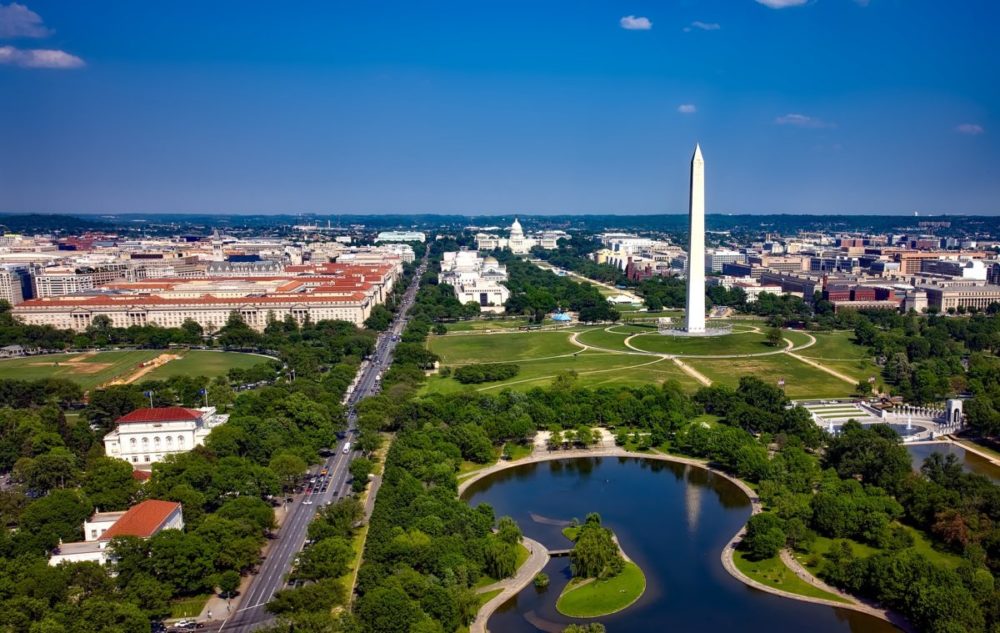As US Assistant Secretary of Commerce for Economic Development Alejandra Castillo put it in February, a tech hub is more than just some dollars and bragging rights.
“A tech hub is not necessarily a building, it’s not a place. It’s a collection of economic drivers in a particular region,” Castillo told Technical.ly earlier this year. “It’s building the interconnected ecosystem that supports critically important emerging industries.”
As we begin to close out the summer, the deadline is looming for applications for the US Economic Development Administration’s (EDA) Tech Hubs program. By Aug. 15, regions across the US must submit applications to be dubbed a Tech Hub for Phase 1 of the program. In Phase 2, which will take place in the fall, the 20 selected hubs will be eligible for a portion of $50 million to $75 million made available from the CHIPS and Science Act.
The goal? Grow hubs across the country that aren’t just Silicon Valley, Boston and NYC; and put some of the supply chain back in domestic hands. But before that can happen, regional entities have to collaborate and tell the federal government why they deserve the opportunity — and the DMV is taking a few stabs at it.
“When we look at the DMV area, you could see how potentially the DMV area could have those economic drivers to come together and maybe go after a tech hub designation and funding,” Castillo said in February.
So, what’s the region been working on? George Thomas, chief innovation officer for Connected DMV, said that there’s movement in both Maryland and Virginia, with some DC players helping out with each. And while some have compared this to the Amazon HQ2 bids, he said it’s more similar to Build Back Better — he guessed about half of the applicants for that program would be applying for this. He also noted that it’s very similar to the National Science Foundation’s Regional Innovation Engines program.
For real change in science and technology, he told Techical.ly, the collaboration piece is crucial.
“No single region or no single state has the wherewithal to pull one of these off because some of these challenges that we’re trying to solve are significant science challenges, technology challenges and commercialization challenges,” Thomas said.
That’s where Connected DMV comes in, as an organization that helps bring together various entities to submit for government proposals. Thomas said that so far, he’s heard of at least three proposals from Virginia, including one from Northern Virginia schools, companies and more focused on climate and resilience. In Maryland, he said there’s one in the region focused on the commercialization of advanced technologies (think quantum and AI). He’s also heard of applications from Northern Maryland and one from the Eastern Shore area.
Several entities involved in applications declined a request for an interview or were unavailable by the time of publication.
As a region, he thinks the DMV boasts a lot of strengths that would make it appealing for a tech hub designation: a strong workforce and talent, as well as being home to the federal government — the largest buyer and investor in technology — and global reach through all the embassies.
“The Greater Washington area, suburban Maryland, Northern Virginia and the district have a tremendous debt of assets in the region that is very, very unique,” Thomas said. “So we are competitive to any other region in the generic assets, federal labs, industrial reaches.”
In addition, he noted that the region is a transportation hub with multiple ports and airports, a huge data center presence and strengths in biotech and biosciences. But any sort of award, he noted, wouldn’t be a make-or-break for DMV technology; it would just be another asset as the region looks to become a tech hub in its own right (let’s not forget, the region already won HQ2 and consistently ranks high on workforce and startup accolades). In fact, just last year, Connected DMV won a $700,000 investment from the EDA and local investors to launch a Life Sciences and Healthcare Quantum Innovation Hub.
Still, whether or not one of the DMV projects will get the region a designation remains to be seen, and Thomas noted that the area doesn’t often get this kind of federal funding even though there are plenty of pockets of need. Part of the problem, he thinks, is that the area has been regularly fragmented, with DC, Maryland and Virginia all fighting with each other for opportunity.
“We have only in the last few years started to connect them all together to flex our muscles a little bit,” Thomas said. “These kinds of federal funding dollars will help really accelerate that and we’ll still go forward — even if we don’t get the money, but it will really help the region accelerate.”







